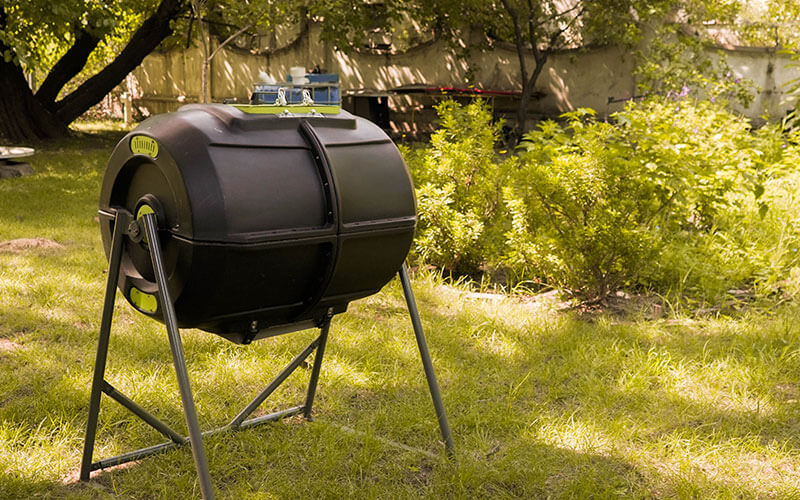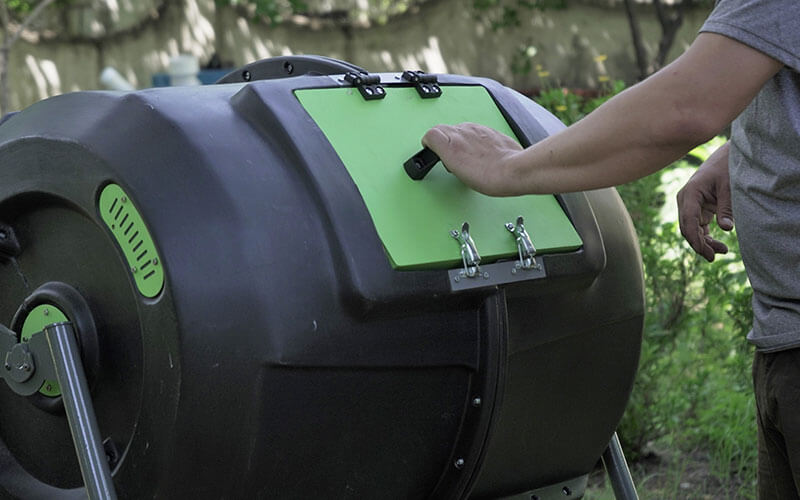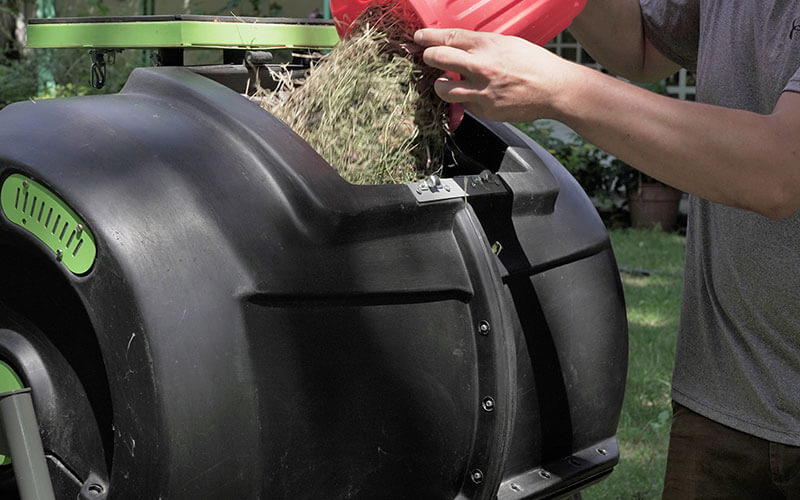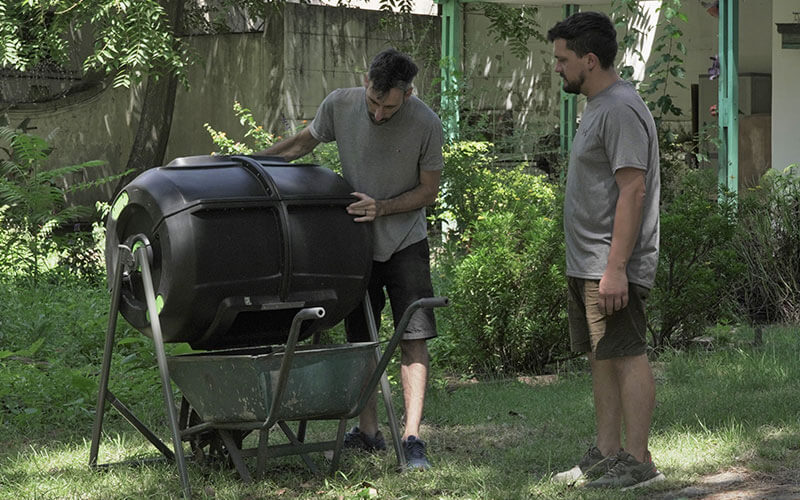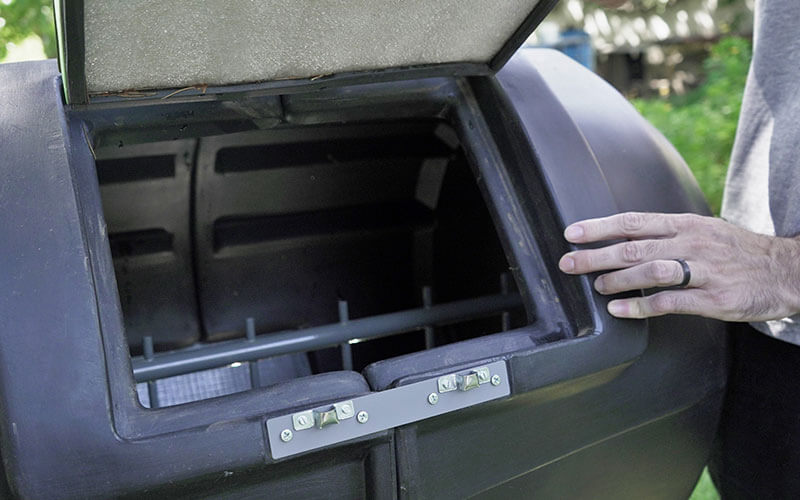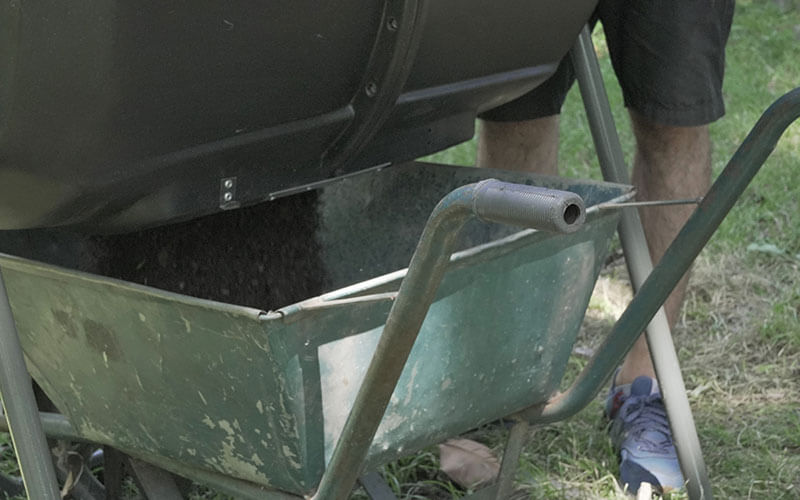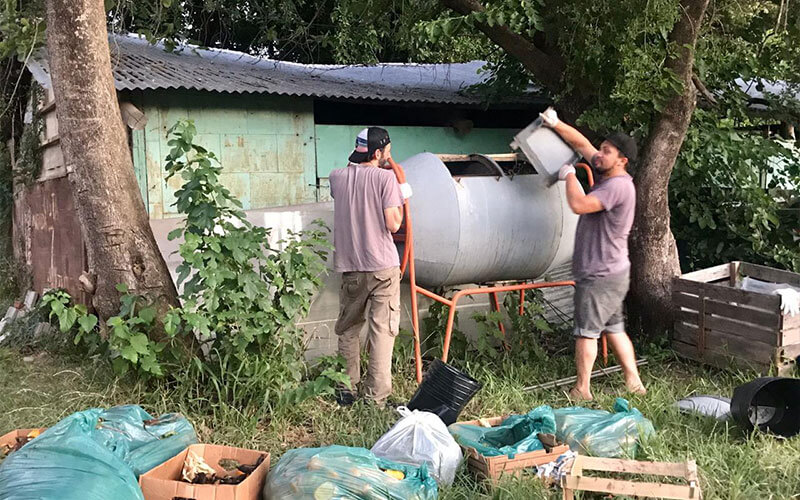In Argentina, organic waste management is not solved. From its collection to its final destination, it causes serious social problems (health risks mainly for vulnerable communities) and environmental problems (pollution and high greenhouse gas emission, among others), besides high economic costs. This issue exceeds the economic and management capacities from most municipal governments across the country, and opens up the possibility of working collaboratively with civil society organizations to think and develop alternative models that allow addressing the situation.
Addressing the need to acquire tools that would allow a better waste management, Alimentaris has joint the work carried out by La Cooperativa de Trabajo Asuma Ltda (work cooperative) in the design of a community composting machine that simplifies, speeds up and turns any kind of organic waste into compost in an easier way, in order to widespread composting practices and decentralize its management.
This is possible due to the development of passive mechanisms to control biological conditions (such as temperature and moisture), their easy operation and constant use without interruptions.
So far, the first prototype has been tested and redesigned to improve its usability and useful life, and the new model has been delivered with which the first community composter installed in Agronomía (Buenos Aires), was manufactured.



